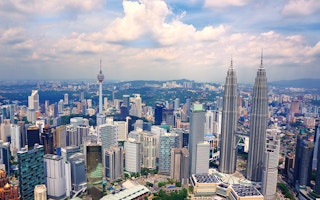In October 2015, Bursa Malaysia launched a new Sustainability Framework, comprising amendments to the Listing Requirements and the issuance of a Sustainable Reporting Guide and Toolkit. What does the latest development in sustainability reporting requirements by Bursa Malaysia mean for Malaysian-based public listed companies (PLCs)?
PLCs in Malaysia are now trying to figure out what this directive requires from them, and the competitive pressures they may subsequently experience in their industries. The amendments to the Listing Requirements will take effect on a staggered basis over three years, starting from 31 December 2016 to 31 December 2018.
PLCs with a market capitalisation over MYR2 billion will be required to disclose their Sustainability Statement in annual report issued for the financial year ending on or after 31 December 2016.
Bursa Malaysia plays a role in enhancing corporate transparency on environmental, social and corporate governance-related issues among companies in Malaysia. In 2007, Bursa Malaysia’s listing requirement for PLCs to report on their CSR initiatives but Harvard Business Review research in 2014 found that did this not increase the levels of disclosure.
This was at a time when CSR was perceived and implemented by majority of the Malaysian companies as philanthropic initiatives with very little link to the business core or strategy.
Today, things have taken a big turn and now investors are increasingly looking at sustainable business practices when investing. On this front, the FTSE4Good Bursa Malaysia Index evaluates the top 200 companies (in terms of market capitalisation) that meets a variety of environment, social and governance (ESG) criteria. At a high level, this will include areas ranging from anti-corruption to climate change through to labour standards.
The constituents of the FTSE4Good Bursa Malaysia Index increased currently to 39 from 24 since the index was first launched in 2014. The 63 per cent rise in June 2016 indicates that the ‘naming and faming’ through meeting the threshold of the index can be a form of positive encouragement for companies to put relevant sustainability information into the public domain.
“
Today, things have taken a big turn and now investors are increasingly looking at sustainable business practices when investing.
With the new Sustainability Framework in place, we may be seeing a substantially longer list of constituents to the index next year.
We are definitely seeing a step up from the PLCs’ previous voluntary description of its four CSR pillars: marketplace, workplace, community and environment to a mandatory requirement that is focused on materiality and stakeholder inclusiveness.
Sustainability reporting is the best strategy to find out where the company stands compared to competitors, to measure the effectiveness of its management and to understand the attitude of stakeholders towards it.
Presenting balance information on both the company’s achievements and challenges also increases transparency and therefore the confidence of stakeholders in the company.
It may be too soon to see the impact of Bursa Malaysia’s new directive but I for one certainly look forward to reading Malaysian PLCs’ annual reports with its expanded sustainability section of hopefully better quality and material content.
I suspect many PLCs are now struggling to put in proper processes to engage their stakeholders and get their materiality framework right, but isn’t sustainability a journey after all?
Esther Teh is a project manager, Helikonia. This post is republished from the CSR Asia blog with permission.


















